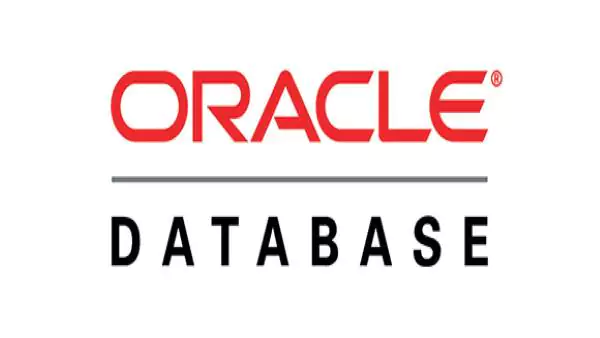
Oracle DB Course
Tally Course, Tally ERP 9, Spoken English Classes, Digital Marketing Course, Python for Beginners, Java Programming, Graphic Design Course, Website Development Course, Internship
Oracle DB Course
Course Detail
Oracle DB

Enrich your future with database management skills through our Oracle Course as it is used for creating and managing large databases. Get a complete understanding of a fully integrated stack of cloud applications and platform services with our comprehensive Oracle Course Curriculum. The students can learn database concepts and management, deep knowledge on SQL, restricting and sorting of data, single-row functions, joins, multi-row functions, sub-queries, data reporting using interface commands, DML and TCL, DDL and constraints, views, DCL commands, dictionary tables, and analytic functions in our Oracle Course.
We have the best courses for you!
Enroll today and learn something new.Syllabus
Oracle (Basic)
Module 1
Introduction to Basic Database Concepts:
- What is Data, Field, record and Database?
- Limitations of File Management System.
- What is DBMS?
- What is RDBMS?
- Basic Concepts of Advantages of DBMS.
- Levels of Abstraction & Database Models.
- Exploring Relational DBMS.
- Understanding Client and Server.
Module 2
E-R Modelling and Diagram:
- Analysing the Requirement.
- Identify Entities and their Relationships.
- Drawing E-R Diagram.
- Conversion of E-R Diagrams into Tables.
Module 3
Normalizations:
- First Normal Form (1NF).
- Second Normal Form (2NF).
- Third Normal Form (3NF).
- Boyce Codd's Normal Form (BCNF).
- Fourth Normal Form (4NF).
- Fifth Normal Form (5NF).
Module 4
Introduction to Oracle:
- What is Oracle?
- What is the Oracle database?
- Editions of Oracle database?
- Features, Components and Tools of Oracle.
Module 5
Environment Setup & System Database:
- Oracle - Environment Setup: Oracle SQL Developer.
- Types of System Database in SQL.
Module 6
Introduction to SQL:
- Basics of SQL. Types of SQL Statements.
- DDL, DML, DQL, DCL and TCL.
- Create Database using Oracle SQL Developer.
- Data types in Oracle.
- Exploring DDL Statements on table using Oracle SQL Developer.
Module 7
Working With DDL Commands:
- Table creation using CREATE statement.
- Creating table from another table.
- Dropping a table using DROP command.
- Altering the column of a table.
- Modifying the column datatype in a table.
- Renaming the column of a table.
- Renaming an entire table.
- Using truncate command.
- Difference between Delete and Truncate command.
Module 8
Working With DML Commands:
- Why write statements in frontends?
- Different types of inserting row to an existing table.
- How to copy data from one table to another table?
- How to copy the structure alone from a table?
- Updating any value of with in a record using UPDATE command.
- Deleting a particular record from a table.
- Using merge & insert all command.
- Truncate statement.
Module 9
Working with Queries(DQL):
- Understanding Select Statement
- Usage of Top, Distinct, Null etc… Keywords
- Using String and Arithmetic Expressions.
- Exploring Where Clause with Operators.
- Using Advanced Operators.
- Sorting data using Order By clause.
- Working with basic of Sub-Queries.
Module 10
Working with Constraints:
- How to declare column level constraints?
- How to declare row level constraints?
- Types of integrity constraints.
- Not NULL.
- Unique.
- Primary Key.
- Default Check Foreign Key.
- How to enable and disable constraints?
- How to get information about constraints?
Module 11
Aggregate Functions and Clause:
- Using functions in queries.
- Using predefined functions.
- Count, Sum, Min, Max, Avg.
- Working with Group BY and Having Clause.
- Difference between Where and Having Clause.
- Using Group By with Rollup and Cube.
Module 12
Importance of Joins:
- Introduction to Joins.
- Inner Join.
- Outer Join.
- Equi Join.
- Self-Join.
- Cross Join.
- Anti Join.
- Semi Join.
Module 13
Set Operations and Pseudo Columns:
- How to use set operators in a single table content?
- Working with set operator types.
- Co-related Sub Queries.
- Working Union, Union All, Intersect and Minus.
- Co-related Sub Queries.
- Working Union, Union All, Intersect and Minus.
- Working with pseudo columns using the following.
- Working ROWID and ROWNUM.
Module 14
Implementation Views:
- Introduction and Advantages of Views.
- Creating, Replacing and Dropping Views.
- Advance Options while Creating a View.
Module 15
Implementation of Data Integrity:
- Entity Integrity.
- Domain Integrity.
- Referential Integrity.
- Types of constraints.
Final Assessment
Oracle (Advance)
Module 16
Data Control Language (DCL):
- Creating Users and Roles.
- Granting and Revoking of Roles and Privileges.
- Managing using Oracle SQL Developer.
Module 17
Working with Indexes:
- Introduction Clustered and Non Clustered Index.
- Creating and Dropping Indexes.
Module 18
Introduction To PL/SQL:
- Informal introduction to PL/SQL
- Advantages of PL/SQL
- Datatypes in PL/SQL
- Program structure of PL/SQL
- Embedding SQL statements
- Using conditional statements and loops
Module 19
Creating And Using Cursors:
- What is cursor?
- How to create cursor?
- Using cursors in PL/SQL
- How to create explicit cursor?
- Creation of for loop cursor
- What are cursor parameters?
- How to use for update clause?
- What is ref cursors?
- How to use implicit cursors?
Module 20
Understanding Exception Handling:
- What is an Exception?
- Describing Exception types
- Handling system defined exceptions
- Handling user defined exceptions?
- Sql code v/s Sql errm
- Pragma exception_init
Module 21
Creation Of Stored Procedures:
- Creating procedures in Pl/SQL
- Working with procedure parameters IN parameter,OUT parameter,INOUT parameter
- How to create procedures with cursors
- How procedures return records?
- What is Pragma autonomous transaction?
Module 22
Creating & Using Functions:
- Importance of function
- How to create functions?
- Difference between procedures and functions
- How to use inline functions?
Module 23
Creating & Using Packages:
- What is a Package?
- Reasons to use packages
- What is package specification?
- What is package body?
- How to instantiate package?
- How to initialize instantiated package?
- What are all the package state?
Module 24
Triggers In PL/SQL:
- How to create triggers?
- Benefits of trigger
- How to trigger a trigger?
- Using DML trigger & DDL trigger
- How to audit database using triggers?
- What are database level trigger?
Module 25
Collections In PL/SQL:
- What is collection?
- How to use arrays?
- Using nested tables
- How to use index by value?
- Listing types of collection methods.
- General overview and discussion about DBA Concepts.
- What is collection?
Final Assessment
MS SQL Server (Professional)
Module 26
Backup and Restore:
- Generating SQL Script.
- Executing SQL Script.
- Generating Change Script.
- Taking database backup.
- Restoring database using backup.
- Attaching and Detaching of database.
Module 27
Oracle Database Management:
- New Oracle Database features.
- Multitenancy.
- Fleet Management capabilities.
- Enterprise Manager Cloud Control.
- Oracle Database Appliance (ODA).
- Exadata Database Machine.
- Deploy, Patch and Upgrade.
- Security.
- High Availability.
- Detective Controls.
- Preventive Controls.
- Database Firewall.
- Oracle Audit Vault.
- Oracle Key Vault.
Final Assessment
Live Project
Opportunity to work on Live Project.
Internship
- Internship under IT Companies.
- Get Full-Time Internship Certificate from IT Companies.
Final Certificate
Upon completion of Course Student will get Final Course Completion Certificate & together with Internship Certificate.
Career Opportunities
- Data Scientist/Data Analyst
- Business Analysts
- Business Intelligence Developer
- Backend Database Programmer
- Software Developer/Engineer
- Database Architect
- Database Administrator
- Database Admin
Entry Qualification
- Candidates will be admitted on the basis of interviews and / or group discussions.
- 20% of the total seats will be reserved for SC, ST and OBC candidates.If the reserved seats are not filled within the specified period, the vacant seats will be offered to the general candidates.
Course Features
Instructor
Industry Experienced Trainer
Rating
4.9 (Google Review)
Study Mode
Offline & Online
Duration
2 month
Language
English, Bengali, Hindi
100% Job Assistance
Yes
Internship
Free & Paid
Course Price
Click to Know
Our Students Testimonials

MD Kashid Hossain
I am MD Kasid Hossain. I am a student of Oxford Global Academy of Excellence, Kolkata. Here I am doing Spoken English class. Oxford Global Academy of Excellence is a very advantage platform by spoken English, computer course and more. There sirs, madams are very Helpful. All time they Support and guide us. I always enjoy my classes.




